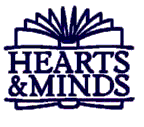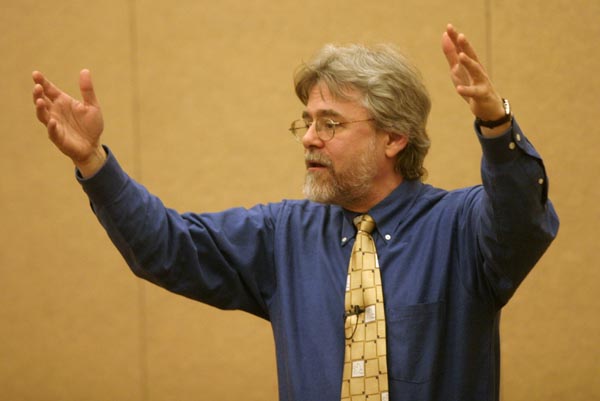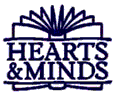Hiroshima & Nagasaki
I have often noted books over the years about realistic peacemaking and conflict resolution. There are basic resources for those new to that issue and there are very scholarly books which also explore this principle for diplomacy. I could note some if anybody is interested. A good starting point, though, is to get a more general vision of international relations and foreign policy. For instance, I have commended other places the newest Jim Skillen book, from the Center for Public Justice, who applies a sort of contemporary Kuyperian worldview framework to his exploration of international affairs--see, With or Against the World: America's Role Among the Nations (Rowman & Littlefield) $24.95. There are others that are more specifically about international peace-building, but I think this is a wise and very helpful contribution about American's role in the world and gets us thinking in broad and serious ways about international justice.
But, today is August 6th. I wanted to write something reflective about the horror of The Bomb, and ponder why there is not a cultural movement about this, the way there was in the 70's and 80's.
But I am exhausted, and my promise to God to allow the Spirit to mold my heart on this day, prayed so many years ago, is weakly held tonight. I did start the day at a conference on faith and science where we are selling books* where I heard a friend tell of his many years working, as he put it before his conference colleagues, as an engineer who was "an atomic bomb-maker." As he told it, his conscience developed and his thinking about his craft matured and he felt that to be reformationally busy with the work of his hands, he needed to find a new job. (He is now even writing a book about the peril and promise of modern technology and how to think faithfully about such things.) Maybe that is the best Hiroshima Day tribute out there: one more repentant heart, willing to take and stand, pay the price, re-think and live a new way.
Spiritually-attuned writers have enriched my life over the years, and in May I wrote at the website a lengthy piece on the recent trend in spirituality and contemplative piety (here). Two writers that have helped shaped that interest in our lifetime are Thomas Merton and Henri Nouwan. Interestingly, on this 60th anniversary of Hiroshima and Nagasaki, both have new books out about resistance to the arms race that had been surpressed in earlier years.
Peace in the Post-Christian Era by Thomas Merton (Orbis) $16.00 This is a long-with-held manuscript, long known "underground" among religious peace activists. Merton influenced the Catholic left and the faith-based resistance to Viet Nam from his monastery--the Pope, then, silenced him in the early 60's and he would write in The Catholic Worker under a fake name. Still, he is well-known as one who was moved deeply by the real suffering and iconic nature of Hiroshima (do you know his long poem about that, The Original Child Bomb?) This newly released collection is a profound warning and a testament on war and peace.
Peacework: Prayer-Resistance-Community Henri Nouwen (Orbis) $16.00 This beautifully little hardback is a set of articles and talks Nouwen gave in the early 80's, I believe, for religious peace protestors and others who felt called to even commit civil disobedience to, like the Old Testament prophets, dramatize the call to end the idolatry of weaponry and come to some sort of spiritual awareness of the unmitigated evil in planning to commit mass murder. With folks like Billy Graham saying such things in the late 70's, and nearly every major denomination weighing in on the dangers of nuclear proliferation, one wouldn't think that, in those years, Nouwen's gentle call to deeply spiritual resistance would be that controversial or unexpected. Still, he sensed that he ought not publishsome of these and withheld the manuscript for years. (Parts of it appeared in the volume edited by John Dear, The Road to Peace so it isn't all brand new.) I am happy it has now seen the light of day, in this format; it seems right for me to share such a wise and tender book on this most important day in the modern world. Work for peace, pray for peace. These little reflections don't answer the big political questions about statecraft and international terrorism and such, but they may help form our hearts to care about the right kind of concerns.
I will have an op-ed piece in the local paper tomorrow. Between the science conference and the visits to the hospital, I will try to post it for your sabbath reading. Do take a look, as it is a passionate, brief response to a guy who wrote a letter-to-the-editor saying we should nuke every town that harbors terrorists. Heaven help us.
I swiped this from a blogger (Daily Kos, who I know nothing about) who got these links from another guy. They are well worth checking out.
- Go here for the Wikipedia entry on the bombings.
- Go here for information on the Hiroshima Peace Memorial, designated a UNESCO World Heritage Site in 1996 over the objections of the U.S. and China.
- Go here for information and background on John Hersey's Hiroshima, which is just as stark and compelling as it was on that August, 1946 day when it first appeared as a whole-issue article in The New Yorker.
- And finally, go to your local independent bookstore and get your own copy of Hiroshima. It should be in every thinking, feeling person's library.
*We have a largebook display set up at the conference of the ASA (The American Scientific Affiliation) which is a broadly evangelical group of scientists and engineers. It is hosted this year at near-by Messiah College and one of our staff and I are working there along with volunteer extraordinare, Scott Calgaro. Thanks to Scott, sponsor, motivator and techie-nerd helper for my blogging efforts who is sitting there even now, allowing me to post this blog and say hello to my family. Thanks to to Jeff Rioux and Derek Melleby for lending hands setting up. I will most likely report about that good event next week, after we lug the boxes back and let the dust settle...





<< Home